 Rebecca J. Griffiths, Principal Investigator
Rebecca J. Griffiths, Principal Investigator
Rebecca J. Griffiths is a principal researcher and co-director of the Digital Learning and Technology Policy program at SRI Education. She conducts research on how educational innovations can increase student learning and success in postsecondary and K12 systems. Her studies blend qualitative and quantitative methods to shed new light on the benefits and challenges of technology-enabled instructional models for diverse students, as well as the factors that drive successful implementation and scaling.
Learn More ▸
Griffiths leads and supports a portfolio of work investigating how emerging technologies and technology-enabled instructional models can enhance educational opportunities and enable new approaches to research. Examples of her studies include an evaluation of the academic and economic impacts of Open Educational Resource (OER) Degrees in community colleges, an exploration of ways in which OER enables more student-entered and equity-oriented teaching and learning practices, an evaluation of an informal STEM learning program for young men of color and rural girls, and a research practice partnership with a community college to embed employability skills in an advanced manufacturing technology program.
Before joining SRI, Griffiths was program director for online learning at Ithaka S+R, a nonprofit postsecondary education research and advisory practice. Griffiths has EdD in higher education management from the University of Pennsylvania and a masters in new product and venture development at MIT, giving her a unique perspective on how technological innovations scale and achieve sustainability and on organizational development and change. She holds a bachelor’s degree from Princeton University in East Asian Studies.
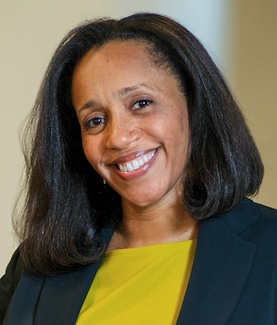 Nikki Edgecombe, Co-Principal Investigator
Nikki Edgecombe, Co-Principal Investigator
Nikki Edgecombe is a senior research scholar at the Community College Research Center (CCRC) and a research professor in the Education Policy and Social Analysis Department at Teachers College, Columbia University. She conducts research on teaching and learning, developmental education, education equity, English learners, faculty development, minority-serving institutions, and higher education finance, among other topics.
Learn More ▸
She is the principal investigator for the Center for the Analysis of Postsecondary Readiness (CAPR), a U.S. Department of Education, Institute of Education Sciences (IES)-funded research center on developmental education jointly run with the social policy research organization MDRC. Edgecombe also leads an IES study on English learners in community colleges and recently completed a study on the adaptation of Lesson Study for community college mathematics instruction.
Edgecombe joined CCRC from JPMorgan, where she studied the financial and organizational performance of publicly traded companies and made investment recommendations to institutional clients. Prior to her work in the private sector, she studied teacher learning and school-based professional development at the Urban Education Institute (formerly the Center for School Improvement) and Consortium on School Research at the University of Chicago. For the Collaborative, Edgecombe will co-lead the institutional policies and practice analysis and the national leadership and capacity building function. As a member of the leadership team, she will help to develop and execute the Collaborative’s strategy and leverage long-standing relationships in the broad-access postsecondary sector to maximize the impact of the work.
She holds a PhD and a MSEd in Education from the University of Pennsylvania and a BA in Urban Studies–Economics from Columbia University.
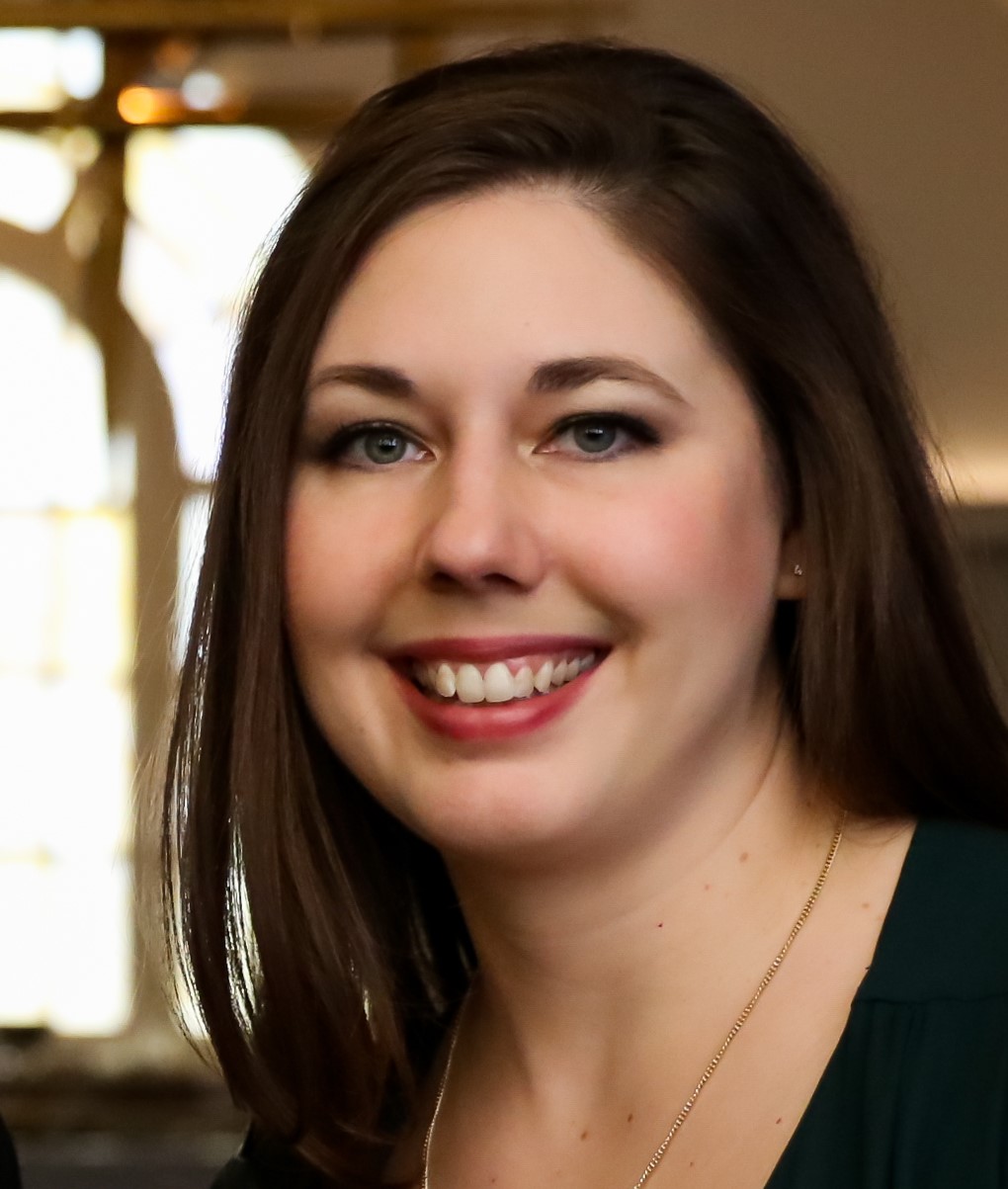 Jessica Mislevy, Co-Principal Investigator
Jessica Mislevy, Co-Principal Investigator
Jessica Mislevy co-directs SRI’s Digital Learning & Technology Policy program, in which she studies highly innovative teaching and learning approaches that use advanced technology in the STEM disciplines. With a background in measurement and statistics, she leads mixed-methods research, evaluation, and technical assistance projects to improve college readiness and completion through the effective adoption of evidence-based practices and products.
Learn More ▸
Mislevy has led large-scale impact, implementation, and cost evaluations of digital learning products and initiatives, including quasi-experimental studies of OER Degree Pathways with 11 community colleges and randomized-controlled trials of adaptive learning programs in K-12 mathematics. For many of these projects, she oversaw the design, administration, and analysis of student and educator surveys, interviews and focus groups, and classroom observations, as well as analyses of system log data. She also provides technical assistance to technology developers and education stakeholders around rigorous evaluation design, evidence standards, and the selection of evidence-based programs, and to support their participation in rigorous research evaluations.
Mislevy earned her Ph.D. in measurement, statistics, and evaluation from the University of Maryland and is a What Works Clearinghouse certified reviewer. Before joining SRI, she worked in institutional research, planning, and assessment at the university, where she supported mixed-methods studies of student, faculty, and staff experiences and the development and validation of a university-wide online course evaluation system.
As lead of the research and development activities for the Collaborative, Mislevy will support all aspects of quantitative design and statistical methodology and ensure that all study plans, data collections, and analyses are up-to-date and aligned with the most rigorous methods available to answer the research questions.
 Krystal Thomas, Co-Principal Investigator
Krystal Thomas, Co-Principal Investigator
Krystal Thomas is an education researcher at SRI Education who brings a developmental psychology and equity lens to research, evaluation, and capacity building. Her projects span issues of teacher quality and practices, students’ academic and social identities, and patterns of contextual inequality in the classroom. Thomas is involved in several studies at SRI, including leading survey development and project management.
Learn More ▸
Current projects focus on data-driven instruction, employability skills, self-regulated learning, socio-emotional skills, open educational resources, and culturally responsive and sustaining pedagogy. Her studies investigate learners in secondary, postsecondary, and adult education contexts. Thomas manages and assists research and development activities for the Collaborative to ensure aspects of quantitative design are equitable, up-to-date, and aligned with the most rigorous methods available.
Before joining SRI, Thomas was an IES Postdoctoral Research Fellow at the Center for Advanced Study of Teaching and Learning at the University of Virginia, a lead statistician at the Metropolitan Educational Research Consortium, and a lab manager at the Cognitive Intervention Research, Culture and Learning Environments in Schools (CIRCLES) Lab. Thomas holds a PhD and master’s in developmental psychology from Virginia Commonwealth University. She also earned a bachelor’s in psychology from Virginia State University.
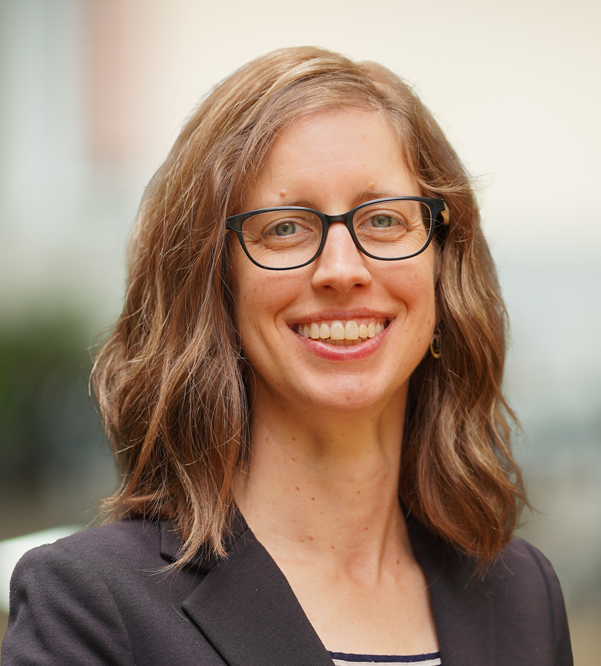 Susan Bickerstaff
Susan Bickerstaff
Susan Bickerstaff is a senior research associate and program lead at the Community College Research Center (CCRC). She conducts qualitative research on developmental education reform, teaching and learning, faculty learning and engagement, and student experiences at community colleges. Her current CCRC projects include the Center for the Analysis of Postsecondary Readiness (CAPR) and the Caring Campus Initiative.
Learn More ▸
Previously, she worked on projects including Engaging Adjunct Faculty in the Student Success Movement, Scaling Mathematics Pathways, and CUNY Start. For the Collaborative, Bickerstaff will conduct qualitative research on the institutional policies and practices related to teaching with instructional technology and the perceptions and experiences of students and faculty in online courses.
Bickerstaff holds a PhD in reading, writing, and literacy from the University of Pennsylvania. Her dissertation focused on the experiences of adolescents at an urban community college. Bickerstaff holds a BA in community health from Brown University and an MS in education from Drexel University. She previously worked as a coordinator at a community-based adult education program and taught research methods courses at Rutgers Graduate School of Education and Oregon State University.
 Thomas Brock
Thomas Brock
Thomas Brock is the director of the Community College Research Center (CCRC) and a research professor at Teachers College. From 2013 to 2018, Brock was the commissioner of the National Center for Education Research (NCER) at the Institute of Education Sciences (IES).
Learn More ▸
As the leader of NCER, Brock spearheaded a comprehensive research program around improving educational outcomes for students of all ages while focusing more of the center’s work on postsecondary research. He also planned and launched national research centers and networks dedicated to topics such as college completion, developmental education, and career and technical education.
In January 2017, former Education Secretary John King delegated to Brock the duties of director of IES. Brock served in the role for more than a year, overseeing IES’s centers on research, evaluation, and statistics and the release of several major reports. Prior to his work for the U.S. Department of Education, Brock spent nearly a decade as the head of the postsecondary education division of MDRC, capping more than 20 years at the independent social policy research organization. Brock will be an advisor to the Collaborative.
Brock earned his BA in anthropology from Pitzer College and holds an MPA from Columbia University and a PhD in social welfare from UCLA.
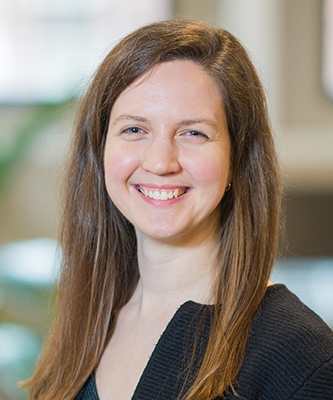 Amy E. Brown
Amy E. Brown
Amy E. Brown is a research associate at the Community College Research Center (CCRC). She conducts qualitative research on teaching and learning in online, STEM, and adult education ESL courses; large-scale college reform implementation and costs; and student experiences at community colleges.
Learn More ▸
Her current projects include the Postsecondary Teaching with Technology Collaborative and English Learners in Community Colleges, as well as support for CCRC’s efforts to advance equity in research. Previously, she worked on projects including a study on the costs required to manage and operate the Federal Work-Study Program as well as numerous projects focused on community colleges implementing guided pathways reforms. Specific projects include guided pathways adoption at the state and national levels and within STEM programs, the development of a strategy to assess the impacts of whole-college reform adoption, the costs of guided pathways reforms, and student major selection processes. Her professional interests include the craft and ethics of qualitative research, grant writing, efforts to address educational inequity, and support for U.S. public education. For the Collaborative, Brown conducts qualitative research on institutional policies and practices related to teaching online and perceptions and experiences of faculty and staff.
Brown holds an MSEd in reading, writing, and literacy from the University of Pennsylvania and a BA in education and creative writing from Colgate University. Prior to joining CCRC, Brown assisted on faculty research projects at Penn and at Colgate. She also worked with young children in the Newburgh Enlarged City School District, at Abington Friends School, and at the Bowdoin College Children’s Center.
 Paul Burkander
Paul Burkander
Paul Burkander is a senior education researcher at SRI with more than 10 years of experience using quantitative analyses to improve student outcomes. He specializes in conducting rigorous descriptive and impact analyses, and in developing and applying evidence review standards.
Learn More ▸
Burkander has led impact analyses for federal agencies such as the U.S. Departments of Education, Labor, and Health and Human Services, and for school districts such as the School District of Philadelphia and the Cleveland Metropolitan School District. These analyses have addressed employment and training programs for adults, college and career preparation programs for students, school reform models, and teacher training and incentives, among other topics.
Burkander has extensive experience working in the Regional Educational Laboratory (REL) Program, having led projects for REL Pacific and REL Mid-Atlantic and having served for 6 years as a REL peer reviewer. He has also co-authored evidence review standards and led the first round of reviews for the Pathways to Work Evidence Clearinghouse, and he is a certified reviewer for What Works Clearinghouse group design standards (Version 4.1).
For the Collaborative, Burkander leads quantitative analyses, examining impacts on students’ self-directed learning skills and academic achievement. He holds a doctorate in economics from Michigan State University and bachelor’s degrees in mathematics and economics from Eastern Michigan University.
 Qican (Sunny) Cao
Qican (Sunny) Cao
Qican Cao is an education researcher at SRI who specializes in quantitative research on a variety of education topics, including STEM education, education policy, college and career pathways, and institutional effectiveness. She also has experience in data system management and data visualization.
Learn More ▸
At SRI, Cao provides quantitative analysis support for several large-scale federal projects, such as the U.S. Department of Education’s Uses of Federal Education Funds Study and the Mid-Atlantic Comprehensive Center. Her work includes data collection, data validation, data cleaning, descriptive analyses, and generating customized reports for various levels of data.
Before joining SRI, Cao was a data analytics strategist at Motlow State Community College, where she coordinated data management efforts institution-wide and conducted quantitative research in program evaluation and institutional effectiveness.
For the Collaborative, Cao supports quantitative data collection and analysis. She holds a master’s degree in international education policy and management from the Peabody College of Education at Vanderbilt University and a bachelor’s degree in history from Nanjing University in China.
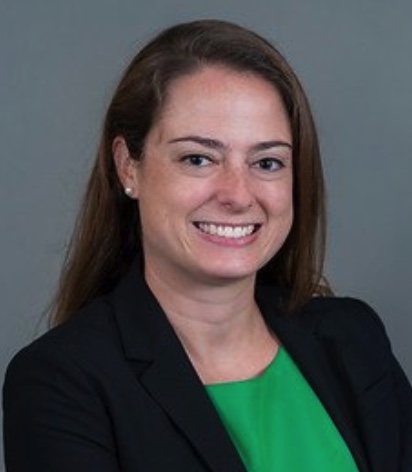 Hannah Cheever
Hannah Cheever
Hannah Cheever is a technical assistance provider and education researcher at SRI Education. Cheever conducts research and provides technical support for projects across content areas and policy contexts, executing strategic project planning and creating systems to ensure quality, timeliness, and responsiveness to client and stakeholder needs.
Learn More ▸
At SRI, Cheever is involved in various studies, including creating evaluation plans for Maryland’s work-based learning opportunities as part of the Region 4 Comprehensive Center. Cheever serves as Center Manager for the Collaborative as well as supporting national leadership, capacity building, and engagement activities.
Prior to joining SRI, Cheever worked as a policy analyst at the National Center for Education and Economy and as a data coordinator for Urban Teachers. Cheever holds a M.P.P. from the Harvard Kennedy School of Government and a B.A. from Davidson College.
 Ariel Deutsch
Ariel Deutsch
Ariel Deutsch is a senior project assistant at CCRC where she supports research on workforce development, community college finance, teaching and learning, and English learners. Before joining CCRC, Deutsch worked at a civilian police oversight agency. She also brings experience as a civil rights litigation paralegal. For the Collaborative, Ariel supports the institutional policies and practice analysis and the co-development process of instructional resources.
Learn More ▸
Deutsch earned a BA in the College of Social Studies—a multidisciplinary program in government, economics, and history—and Italian from Wesleyan University. At Wesleyan, Deutsch served in student government, coordinated academic supports, including peer tutoring, and assisted faculty research projects.
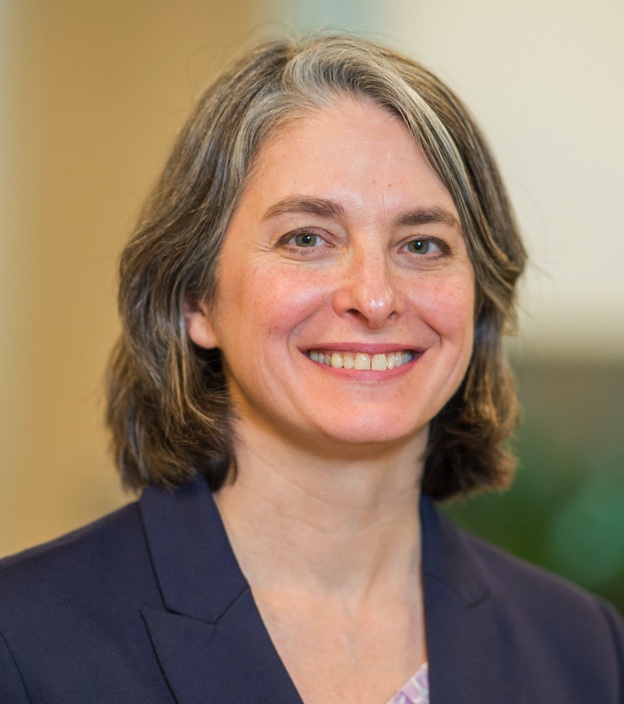 Elizabeth Ganga
Elizabeth Ganga
Elizabeth Ganga is the communications manager at the Community College Research Center (CCRC). She works to ensure that the insights and knowledge developed through CCRC studies reach the people who can benefit from them, including community college educators and administrators, state and system leaders, and policymakers.
Learn More ▸
She conducts press outreach, manages CCRC’s blogs and social media accounts, writes website updates, and contributes to a variety of projects. Ganga also writes report summaries and briefs and helps researchers communicate their findings through blog posts, op-eds, graphics, audio, and video.
Ganga is a member of the Collaborative’s communications team. She joined CCRC in 2015 after a 20-year career in newspaper journalism. She earned a BA in political science from the University of California, Berkeley, and an MS from the Columbia University Graduate School of Journalism.
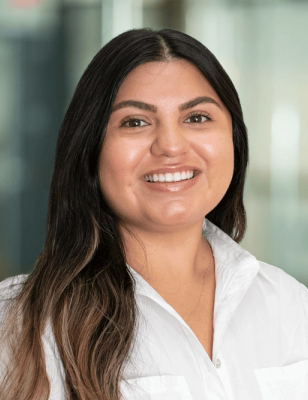 Jenivee Gastelum
Jenivee Gastelum
Jenivee Gastelum is a research assistant at CCRC, where she assists on a project devoted to self-directed learning skills. A native of Riverside, California, Gastelum attended Riverside City College (RCC), where she received her AA in Sociology and graduated with great distinction. She was also nominated by her department as sociology student of the year.
Learn More ▸
She transferred to the University of California, Los Angeles, where she earned her BA in sociology and a minor in education studies. She has recently completed her MA program in Sociology and Education from Teachers College, Columbia University.
During her time in community college, Gastelum worked as an English tutor, which sparked her interest in education. She also participated on the Student Equity Committee (SEC), which allowed her to understand many inequalities that community college students face. While at UCLA, she simultaneously worked as a teaching assistant for kindergarteners and as a college advisor for high schoolers. Gastelum’s research interests include access to higher education, community colleges, and racial and ethnicity identity.
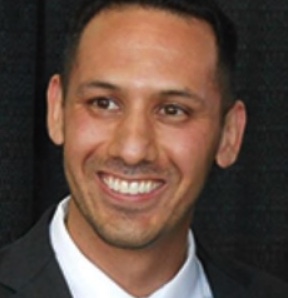 Paul Hernandez
Paul Hernandez
Dr. Paul Hernandez is senior adviser to the president at Achieving the Dream. Dr. Hernandez is a community college leader and practitioner and an Aspen Rising Presidents Fellow serving most recently as vice president for academic and student affairs at Mount Wachusett Community College.
Learn More ▸
Prior to his service there, he was the chief diversity officer at Lansing Community College. Dr. Hernandez is a nationally recognized leader in college access and success, community outreach, and pedagogy, a former faculty member and non-profit administrator. He was awarded the National Education Association Reg Weaver Human and Civil Rights Award, the Michigan Education Association Elizabeth Siddall Human Rights Award, the Equity in Education Award by the Michigan Association of Collegiate Registrars and Admissions Officers, and an Honors Professor of the Year Award for teaching. He is also the author of the book The Pedagogy of Real Talk: Engaging, Teaching and Connecting Students At-Promise.
Dr. Hernandez earned his doctorate in sociology from Michigan State University, his bachelor’s degree from California State University, and his associate degree from Los Angeles Community College. Prior to earning his degrees, he was engulfed in gang culture and deep poverty, surviving on the streets of Los Angeles. He openly shares his powerful personal story hoping to influence and empower young people traveling a similar path.
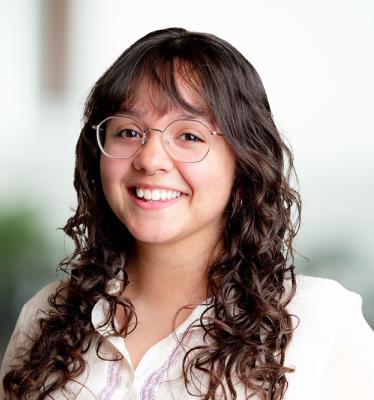 Shayleah Jenkins
Shayleah Jenkins
Shayleah Jenkins is a communications assistant at CCRC, where she supports general media outreach efforts and works to maintain content on the center’s website and blog. Prior to joining the team, Jenkins was involved with various non-profit arts and humanities organizations and spent time writing for an independent education newspaper based in Philadelphia.
Learn More ▸
Jenkins joined the Collaborative’s communications team in 2022 and has since assisted with social media campaigns, content creation, and more. She holds a BA in English from Haverford College, where she attended as a first-generation student and Questbridge National Match Scholar.
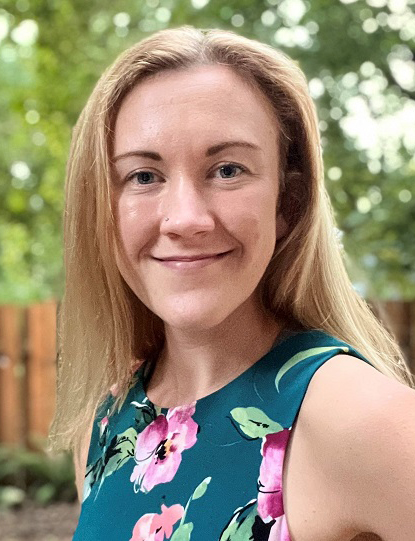 Jodie Lawrence
Jodie Lawrence
Jodie Lawrence is an education researcher at SRI Education. She participates in a wide range of projects focusing on accessibility and equity in STEM education, technology innovation and integration, and dissemination of relevant information in innovative and strategic ways. She also serves as the deputy project manager for the Regional Educational Laboratory (REL) Appalachia.
Learn More ▸
Before coming to SRI, Lawrence served in the Office of Educational Technology at the U.S. Department of Education, working on projects related to digital literacy, open access, and innovation. Her passion for education stems from her time as a math teacher in St. Louis Public Schools.
For the Collaborative, Lawrence supports project management and dissemination activities. She holds a master of public policy degree from the University of Chicago, an master of education degree from the University of Missouri, and a bachelor’s degree in strategic and technical communication from the University of Minnesota.
 Yesica Lopez
Yesica Lopez
Yesica Lopez is a senior project manager at SRI with nearly a decade of experience managing diverse and complex, multiyear and large-scale projects. She currently supports leadership teams in developing and implementing strategic plans and processes, managing administrative and financial activities, and monitoring overall compliance.
Learn More ▸
At SRI, Lopez is also involved in other projects, including a comprehensive implementation study of computational thinking education curriculum in Hong Kong primary schools, a research study investigating continuous quality improvement practices and STEAM afterschool programming, a study describing how federal funds are targeted to districts and how districts use funds from five federal education programs, and a national initiative focusing on diversity, inclusion and broadening participation in STEM at scale.
For the Collaborative, Lopez serves as the business project manager. She earned her bachelor’s degree in business administration from Notre Dame de Namur University in Belmont, California, and holds the Project Management Professional (PMP) certification from the Project Management Institute.
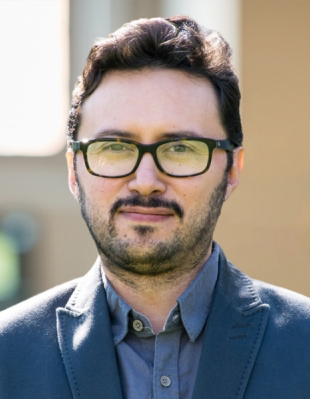 Jorge Mahecha
Jorge Mahecha
Jorge Mahecha is a Research Associate at CCRC, where his research interests focus on the measurement of Self-Directed Learning skills, student engagement, and the academic trajectories of English and Adult Learners in Community Colleges.
Learn More ▸
Recently, Jorge has taught Survey Research Methods at Teachers College, Columbia University, and Psychometrics for doctoral students at the Wheelock College of Education & Human Development at Boston University. He consults for the International Rescue Committee in instrument development, psychometrics, and program evaluation. He is one of the co-founders and board members of Teach for Colombia.
Prior to joining CCRC, Jorge held positions at WestEd and The Russian School of Mathematics, and worked as a consultant in program evaluation for several organizations in his native Colombia. He holds master’s in education from Boston University and Los Andes University (Bogotá).
 Akilah H. Thompson
Akilah H. Thompson
Akilah H. Thompson is a senior research assistant who conducts qualitative research at CCRC on student experiences and faculty learning and engagement. Thompson works on projects related to self-directed learning skills of postsecondary students and how instructional technology and strategic instruction might support the development of transferable skills.
Learn More ▸
Thompson also does research exploring how students choose their majors and what perceptions they have of their programs throughout their college careers. In addition, Thompson supports CCRC’s efforts to advance equity.
Thompson earned a BA in education studies from New York University and an AA in general studies from Suffolk County Community College (SCCC). She spent one year at SCCC and two years at NYU, leveraging an early college program at her Long Island high school to earn transferable credits toward her AA at SCCC starting in 11th grade. Doing so allowed her to decrease her time to degree after high school.
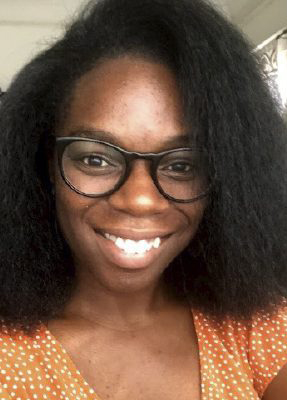 Keena P. Walters
Keena P. Walters
Keena Walters is an equity-focused qualitative researcher in education. She brings her expertise in qualitative data collection and analysis to projects related to college and career pathways, alternative secondary education, and social-emotional learning. She also has a background in special education and administration.
Learn More ▸
At SRI, Walters’ current projects focus on school district procurement, teacher residency programs, and tools to support middle and secondary schools with more access to STEM. Before joining SRI, she worked as an associate consultant at Phase Two Advisory and as a consultant with the Education Insights (EdInsights) Center at California State University, Sacramento. At EdInsights, she supported the university’s Student Success Network, researching topics of relevance to the system and building professional learning opportunities.
Previously, Walters worked in education nonprofits for 10 years, including The Education Trust-West. Before that, she worked for a start-up prison reform organization in the hopes of using education to dismantle the mass incarceration system.
For the Collaborative, Walters conducts qualitative work and runs the fellowship program to keep students engaged in research. She recently completed her master’s degree in social and cultural analysis of education from California State University, Long Beach. Her thesis was on the administrative barriers faced by first-generation students of color.
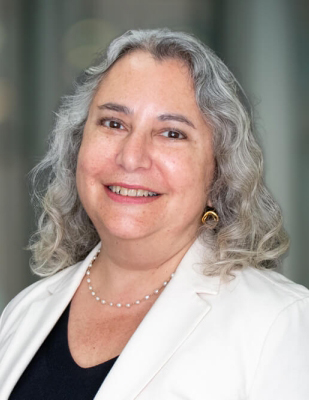 Ellen Wasserman
Ellen Wasserman
Ellen Wasserman is a research associate at the Community College Research Center (CCRC). She conducts qualitative research on teaching and learning, college reform and student experiences at community colleges. Her current projects include the Postsecondary Teaching with Technology Collaborative, the Center for the Analysis of Postsecondary Readiness (CAPR), and the evaluation of a professional development course in teaching with technology for the Regional Education Laboratory (REL) Northwest.
Learn More ▸
Wasserman’s professional interests include faculty development that fosters cultural strengths awareness and inclusive teaching practices for racially/ethnically minoritized students, and improving persistence for first-generation community college students.
Working with the Postsecondary Teaching with Technology Collaborative, she conducts qualitative research about online teaching and learning including institutional policies and practices, and how technology can be used to enhance students’ use of self-directed learning skills in online STEM courses.
Wasserman holds an EdD in Community College Leadership New Jersey City University, an MAT in English education from Manhattanville College, and a BA in English from Barnard College. Prior to joining CCRC, Wasserman was an adjunct professor of English and program specialist in academic affairs at Westchester Community College.
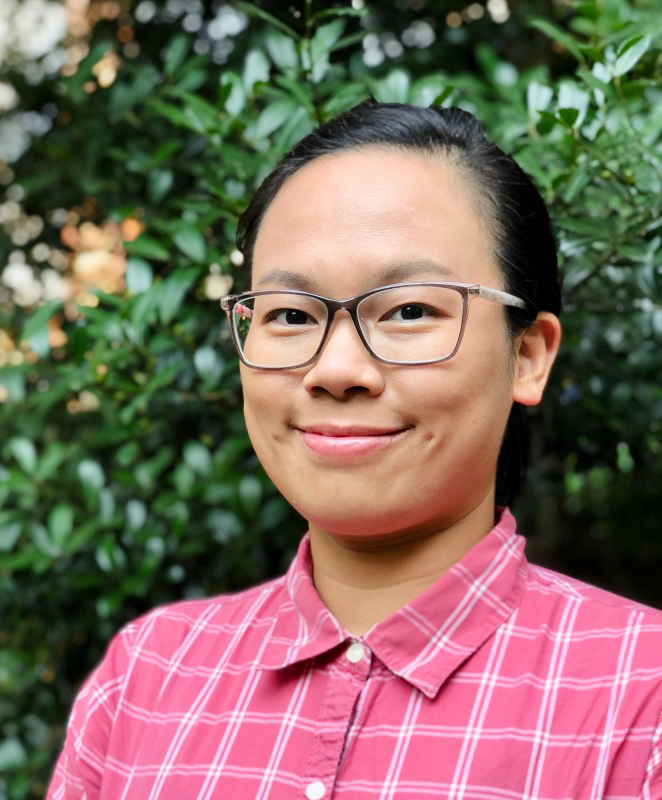 Hui Yang
Hui Yang
Hui Yang is a STEM and computer science education researcher at SRI. She specializes in the field of learning sciences, primarily focusing on integrating educational technologies to enhance the effectiveness of teaching and learning in K–16. Her research interests include examining how teachers utilize learning technologies and blending content knowledge and pedagogical strategies to support diverse students in achieving meaningful and impactful learning experiences.
Learn More ▸
Additionally, Yang conducts research on how student-centered and technology-enhanced learning environments promote student learning interests and influence learners’ collaborative behaviors and problem-solving skills. Her expertise encompasses the design of technology-supported learning environments in both formal and informal educational settings, the design and execution of mixed methods research studies, and the use of learning analytics to investigate technology-generated data.
Yang currently supports various research and evaluation projects, across multiple disciplines and divisions at SRI, that facilitate effective instruction and learning for all students. Before joining SRI, she was a postdoctoral teaching and research associate at the Department of Information Science and the Future of Learning Lab at Cornell University.
For the Collaborative, Yang supports the learning management system data analysis work. She earned her doctorate in learning sciences from the University of Delaware and also holds a master’s degree in educational technology, a bachelor’s degree in elementary education, and a bachelor’s degree in educational information technology. She also has teaching certifications in multiple areas.
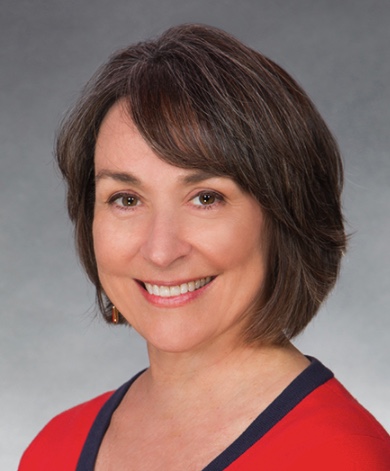 Louise Yarnall
Louise Yarnall
Louise Yarnall is a senior research social scientist at SRI Education. She studies ways to help educators and employers prepare learners for careers. Yarnall’s work focuses on supporting novel ways to integrate career exploration and preparation into both K–16 and the workplace settings. She has published research on how instructors can incorporate workplace simulation projects and employability skills development into the classroom.
Learn More ▸
She has designed and evaluated the efficacy of new forms of technology to improve learning in college and on the job, including leading national studies on adaptive learning products and several studies focused on design and prototyping new learning methods using mobile, augmented reality, and artificial intelligence technologies.
Yarnall excels at analyzing both technical knowledge in a wide range of domains and non-technical skills that support success in life and work. Yarnall has analyzed such content in college, military, and employer courses. She has documented the knowledge of expert workplace technicians. She has studied techniques for improving employability skills such as communication, teamwork, and adapting to workplace expectations. She led a team that developed a work-based learning framework for the state of Maryland. Yarnall also is an expert in the design and delivery of problem-based learning and adaptive learning courseware.
In her doctoral thesis at UCLA, she measured how well people discern different viewpoints in news reports and editorials. This work led her to explore how people learn core knowledge in multiple fields and how educators can design instruction to accelerate the development of expert understanding in many domains.
 Rebecca J. Griffiths, Principal Investigator
Rebecca J. Griffiths, Principal Investigator Nikki Edgecombe, Co-Principal Investigator
Nikki Edgecombe, Co-Principal Investigator Jessica Mislevy, Co-Principal Investigator
Jessica Mislevy, Co-Principal Investigator Krystal Thomas, Co-Principal Investigator
Krystal Thomas, Co-Principal Investigator Susan Bickerstaff
Susan Bickerstaff Thomas Brock
Thomas Brock Amy E. Brown
Amy E. Brown Paul Burkander
Paul Burkander Qican (Sunny) Cao
Qican (Sunny) Cao Hannah Cheever
Hannah Cheever  Ariel Deutsch
Ariel Deutsch Elizabeth Ganga
Elizabeth Ganga  Jenivee Gastelum
Jenivee Gastelum Paul Hernandez
Paul Hernandez Shayleah Jenkins
Shayleah Jenkins Jodie Lawrence
Jodie Lawrence Yesica Lopez
Yesica Lopez Jorge Mahecha
Jorge Mahecha Akilah H. Thompson
Akilah H. Thompson Keena P. Walters
Keena P. Walters Ellen Wasserman
Ellen Wasserman  Hui Yang
Hui Yang  Louise Yarnall
Louise Yarnall